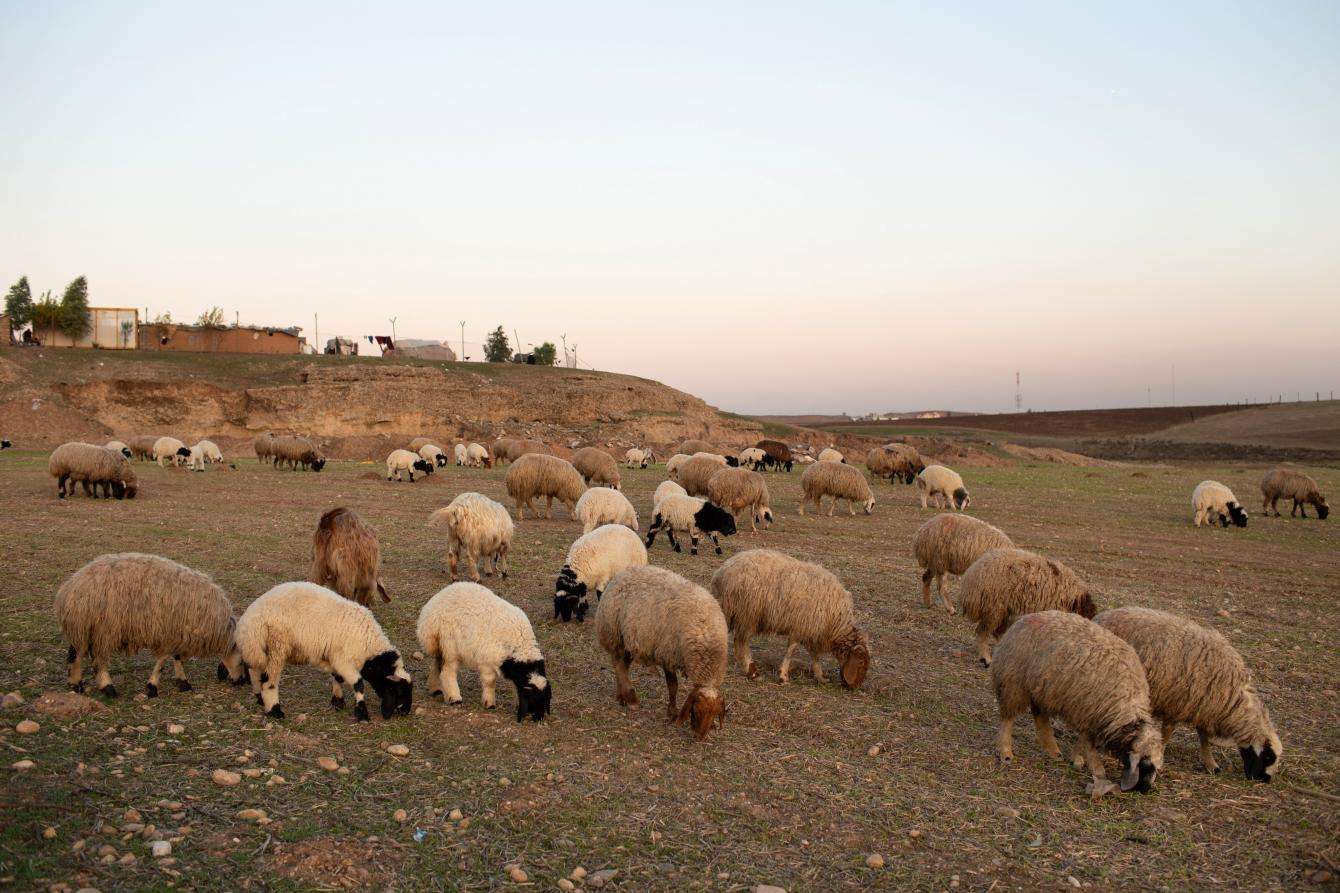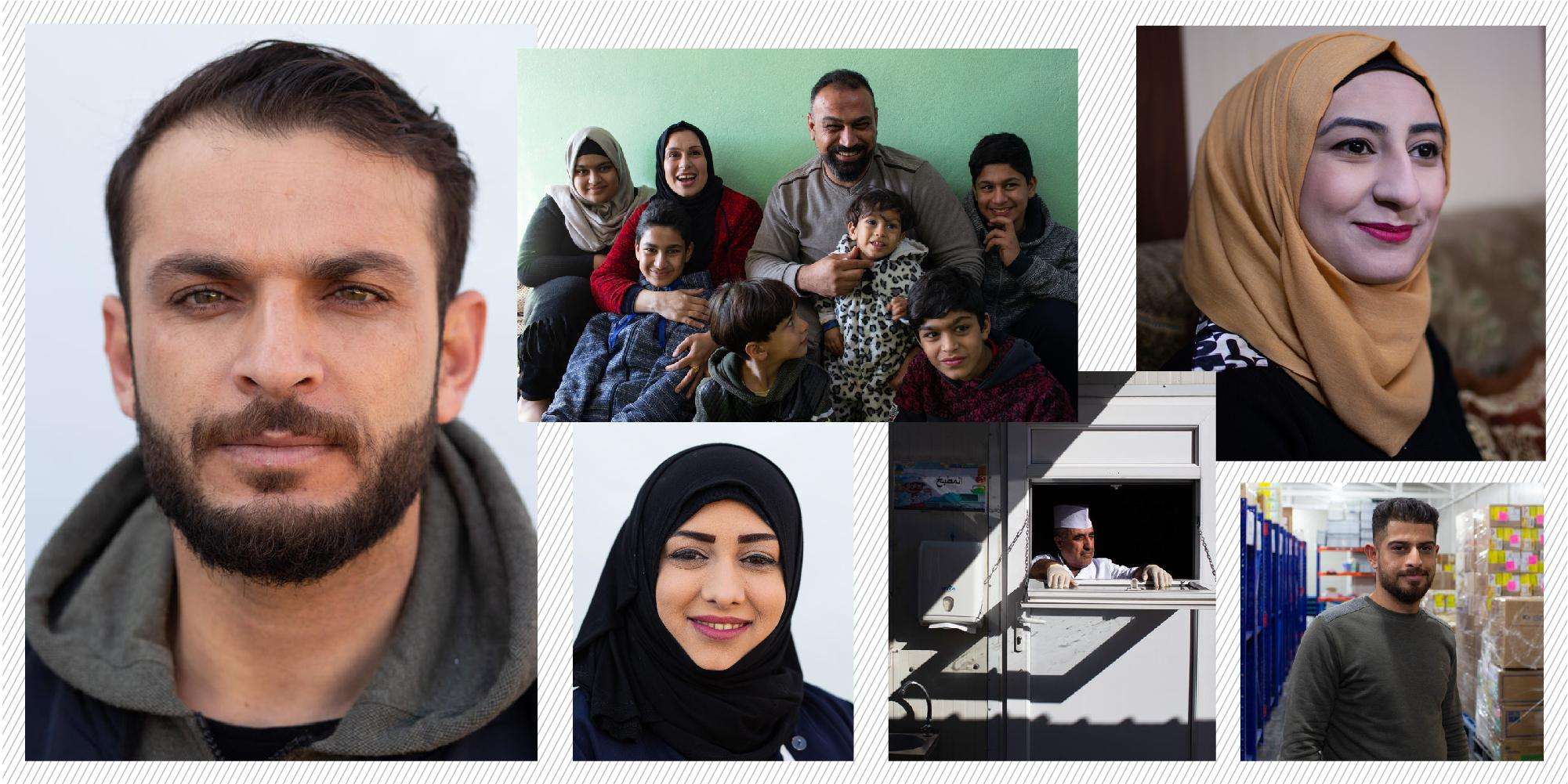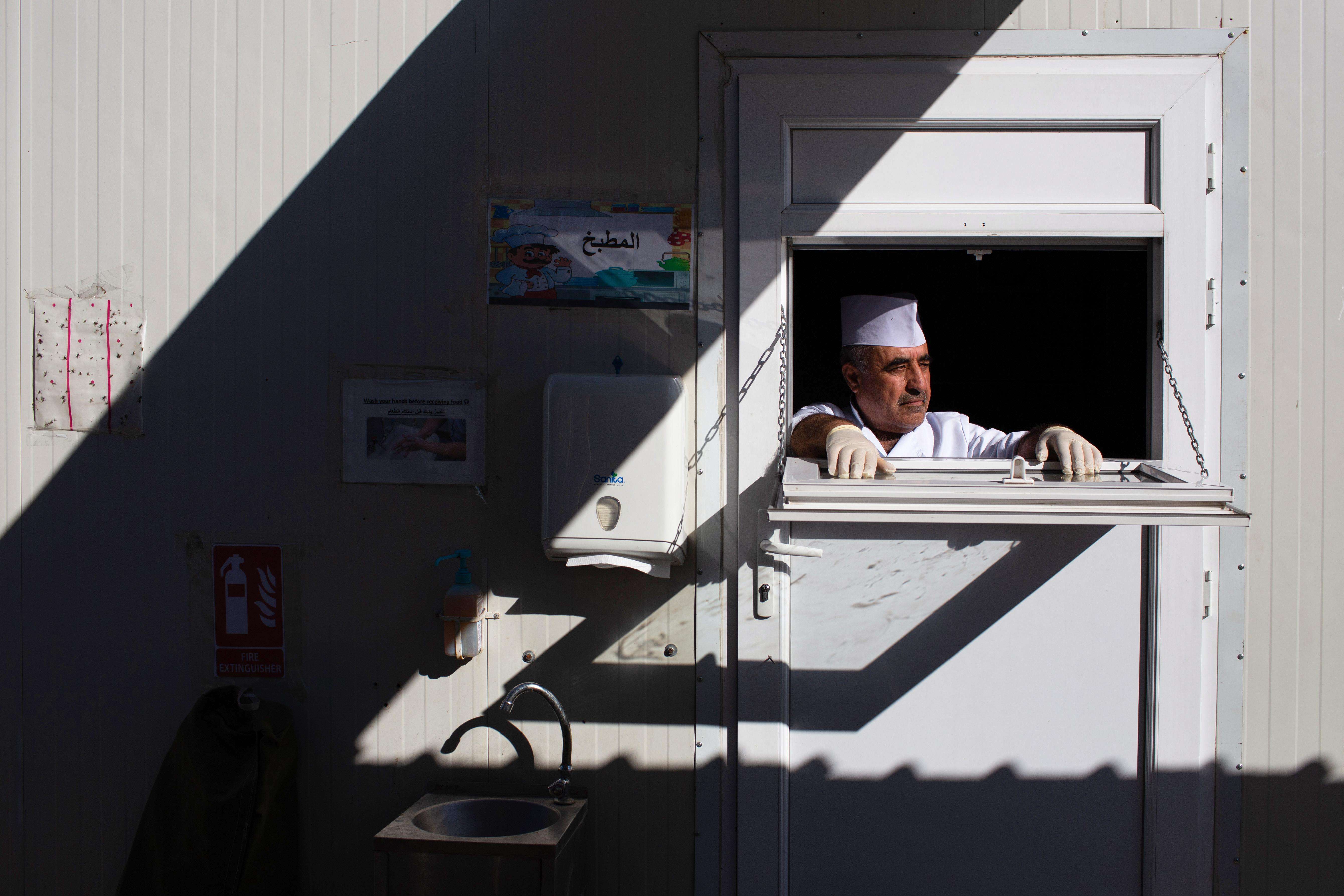During Iraq’s 2017 military operations that were focused on taking the city of Mosul back from the Islamic State (IS) group, Doctors Without Borders/Médecins Sans Frontières (MSF) continued to be one of the many non-governmental organizations responding to the humanitarian needs in the area. Since 1991, MSF has been working continuously in Iraq. With more than 1,700 staff, the organization provides free quality health care for all people in Iraq regardless of race, religion, gender or political affiliation and offers services such as basic health care, treatment for chronic diseases, secondary health care, pediatric and emergency care, specialized services to treat severely injured patients with post-operative complications and mental health support to displaced people and people most affected by violence in Iraq.
Despite MSF’s rather self-explanatory name—our work could not happen without the immense efforts of our non-medical staff behind the scenes. In Iraq, where over 90 percent of the MSF staff is Iraqi, a variety of staff contribute to the success of our projects including engineers, pharmacists, logisticians, and more. These stories shed light on the range of motives, experiences, and perspectives that sustain MSF's activities in the country and contribute to a culture of care.
Suhaib Majed, from translator to field coordinator support
In the emergency room at MSF’s field hospital in Hammam Al-Alil, a woman regained consciousness and immediately burst into tears. She looked as if she wanted to say something but was too overwhelmed with grief to speak. MSF nurse Hannah and translator Suhaib waited nearby to listen and console her. Ten minutes passed before the woman was able to speak. At last she turned to 32-year-old Suhaib and said, “My son who died looked exactly like you. Please, may I hug you?”
Thirty-two-year-old Suhaib Majed remembers this scene from two years ago as if it were yesterday. The woman had lost her only child when a mortar shell hit their home when the Iraqi government’s struggled to regain control of Mosul. Suhaib visited the woman several times in the field hospital’s inpatient ward, where she would hold his hand and kiss it.
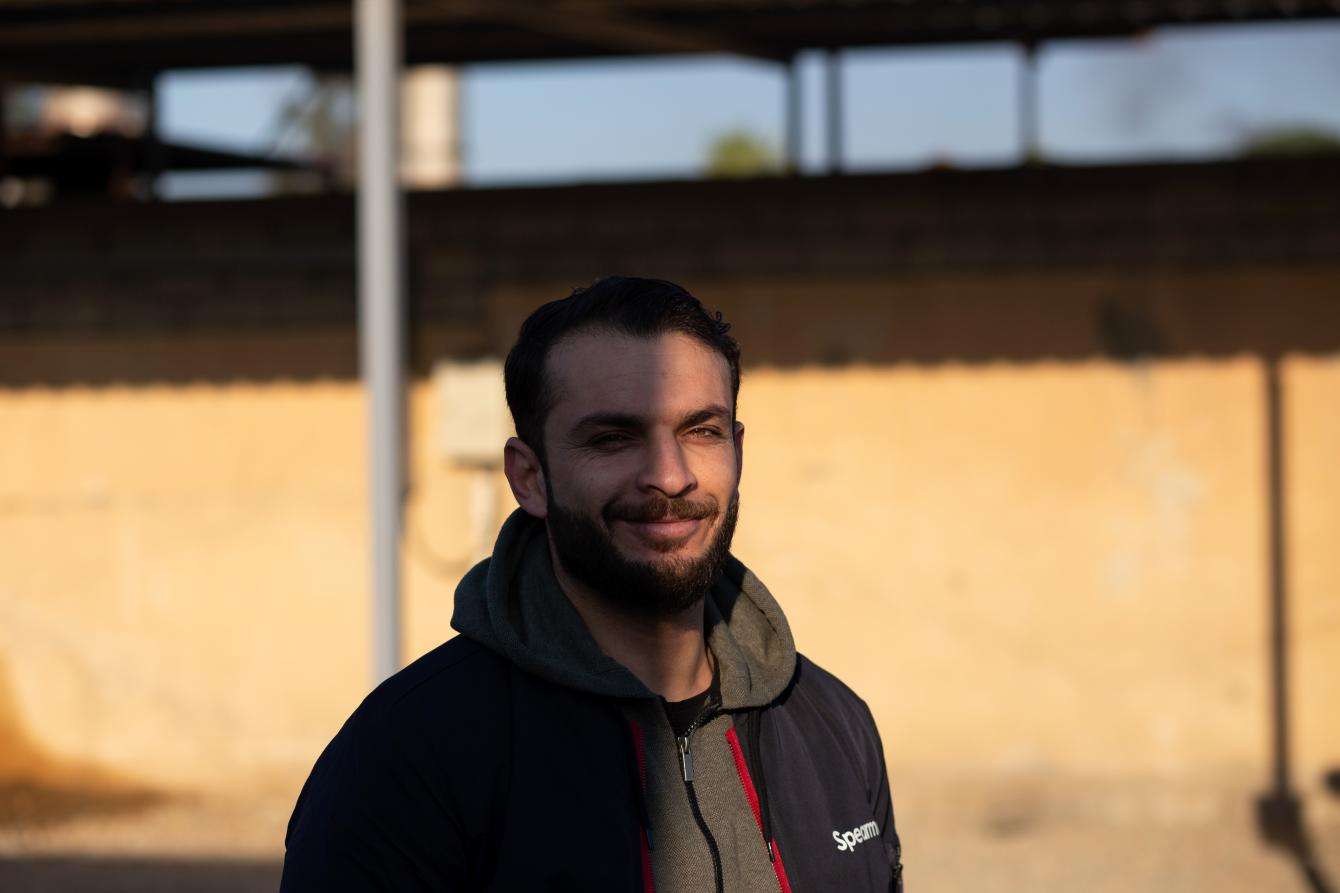
“When I applied to work for MSF, I was just looking for a job like any other unemployed person,” says Majed. After years of armed conflict in Mosul, job opportunities were limited. He didn’t expect the organization to have non-medical positions but then found out about other opportunities. He was hired as a translator.
Suhaib’s love for Mosul runs deep—so much so that he stayed in the city even when he knew his best hope was to leave and find a future elsewhere. “I thought of leaving the city,” he says. “But I doubted that I could find myself outside it. Mosul is my life. Now I’m married to the girl I love. We are building our own little kingdom whose national anthem is a love song that never wears out.”
His experiences in Mosul had left him with many questions, and he turned to writing to help find the answers. “Writing is a form of self-discovery through beautiful syntax---an especially important practice given the lack of space we are afforded to express our thoughts in our society,” he says. “I’m convinced that writing with any depth can only come out of adversity, and in order for me to be creative, my writing has to be authentic.”
Although Suhaib no longer works as a translator, he now gives field coordinator support at MSF’s post-operative care hospital in east Mosul. His responsibilities include representing MSF to local authorities and writing regular reports on developments within that are relevant to MSF’s activities. “What I like most about my work is that it is unconventional,” he says. “It combines my passion to stay informed of all the developments in the city with my passion for writing. It has also helped me develop my language skills.”
Among other discoveries he made on the job, Suhaib found that he enjoys listening to all the different viewpoints he hears. “I want people to remember me as a peaceful person who respected their personal freedoms,” he says. “I believe this is key to the security and peace that our society so badly needs.”
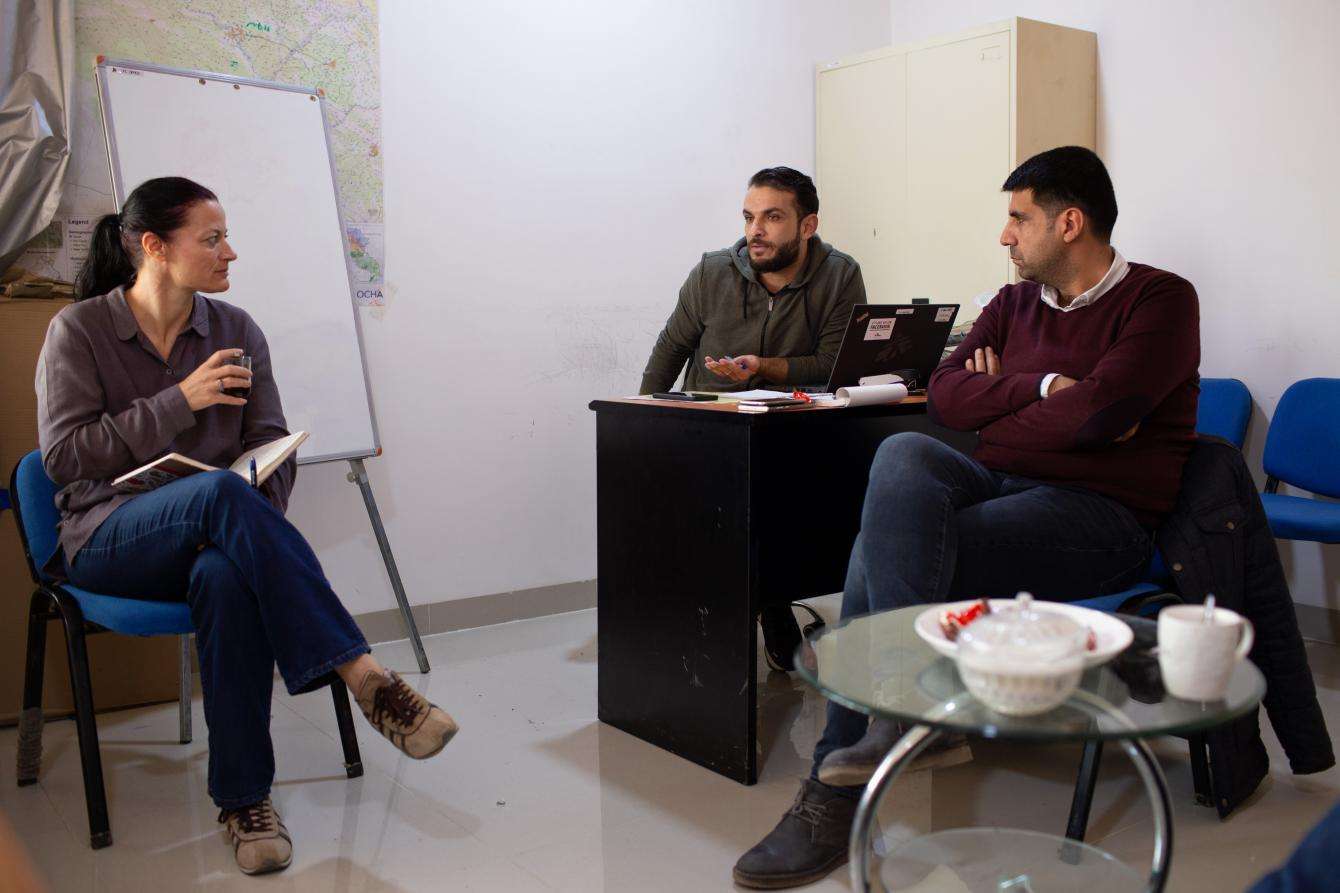
Yasmine Mohammed, the security guard
“My name is Yasmine Mohammed. I am 27 years old. I am from Mosul. I love Mosul and I live to serve Mosul.”
This is how Yasmine introduces herself when meeting new people. It’s an accurate description. But there is more to her.
For Yasmine, time stopped in Mosul when IS took control of the city. To protect her brothers and sister from the risks of going to work, she withdrew from the nursing institute where she was a student so she could earn a living for her family. Using the basic nursing skills that she learned from a friend, Yasmine opened a small clinic in her home.
Yasmine charged only a nominal fee for her services and only to those who could afford it. Her goal was to help people who were injured in the ongoing battles by removing shrapnel and suturing their wounds.
“When the Iraqi government regained control of Mosul, many of us, young men and women, were at a turning point,” she says. “We saw our city under the rubble and we wanted to get it back on its feet. We started with clearing the university campus and school compounds. We helped people who had been displaced from their homes. We also raised money to rebuild a church and we held the first mass in west Mosul after the fighting stopped.”

With the fighting over, Yasmine was able to get on with her life, intent on continuing her service work. She took courses on community empowerment and peacebuilding. She became a leader and trainer, then started facilitating courses and seminars for women. “The role of women in our society isn’t limited to the home,” says Yasmine. “How would Germany have been rebuilt after the second world war were it not for women? The women of Mosul have an essential role to play in rebuilding the fabric of our society.”
Yasmine now works as a security guard at MSF’s post-operative care hospital in east Mosul. Every day, she conducts security searches of the female staff, patients, and visitors as they enter the facility. She often makes small talk with them and makes sure they feel welcome. One of the best parts of her job is the opportunity to boost people’s morale, even under stressful circumstances.
Her main motivations for working for MSF are its principles of independence and neutrality and her passion for service. “I like people very much, and I get satisfaction from my work,” she says. “I may make a patient happy or lighten the day of a colleague with a friendly word as they enter the building.”
Yasmine says her work has bolstered her self-confidence and her belief in her capacity to make a difference. Recently she decided to reach for her childhood dream and become a television presenter – while still working at her day job and contributing to civil society initiatives. She now moonlights as a presenter on a local TV channel. Her first two TV programs focused on telling the stories of resilient women who supported their families after their husbands were killed by violent conflict. But Yasmine’s media work hasn’t interfered with her humanitarian work, which “runs in [her] blood now”, as she puts it.
“I receive a lot of criticism: many people tell me that helping others will not benefit me, but I don’t care what they say,” says Yasmine. “My life is beautiful and I don’t need to own a palace or a car to be happy. Materialism is not the purpose of life. Humanity is life.”
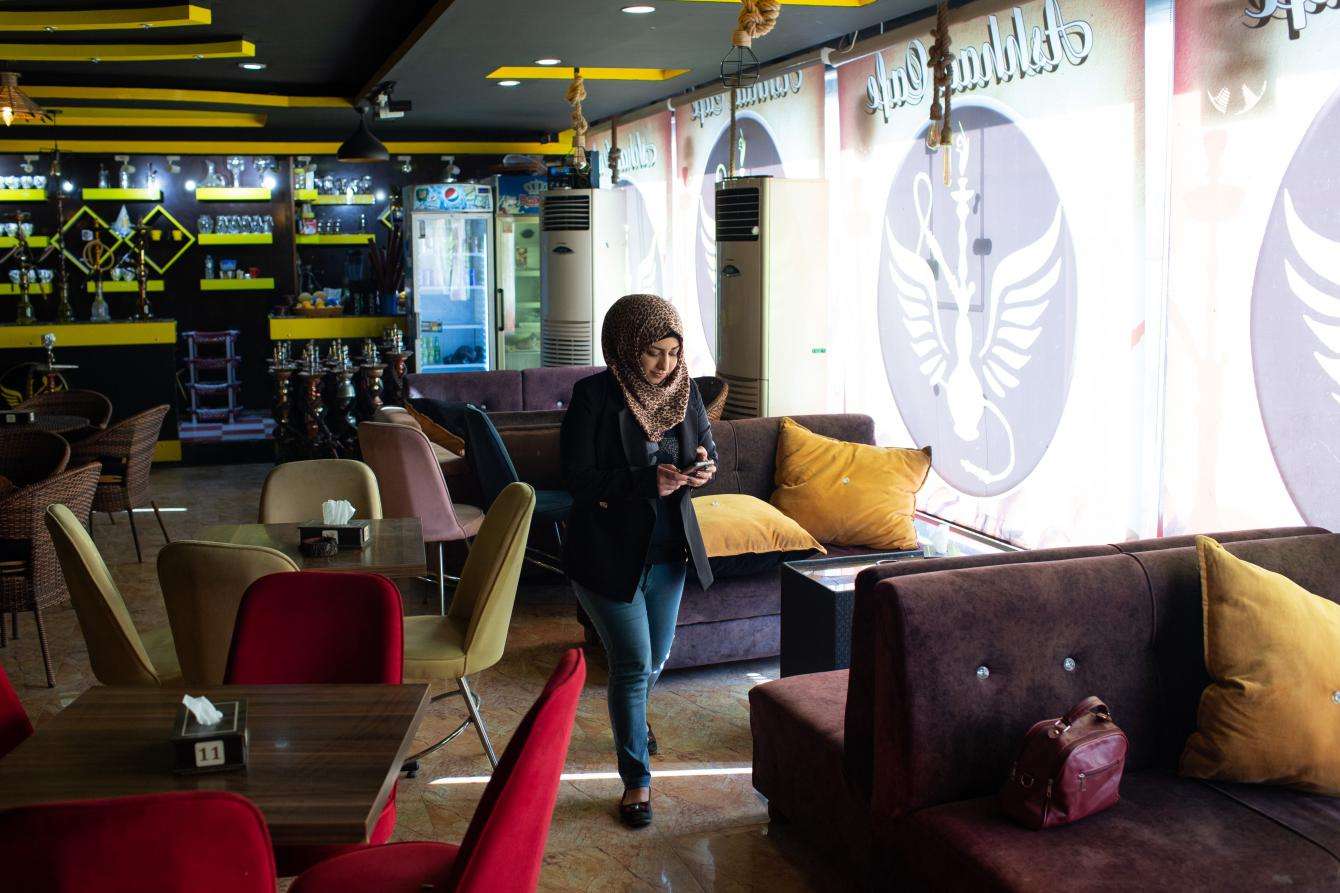
Abdallah Zarzour, head cook
Abdallah Zarzour often quotes the famous poem, “Al-Atla l[the ruins]”, to describe his situation:
“Oh, my beloved, it’s all pre-destined;
It was not up to us that we were to suffer.
Every one of us has got a plan
That was designed for them, not by them.”
Abdallah’s guiding philosophy, developed over a 60-year life span, is a mix of realism and optimism. He believes in destiny not out of despair, but out of a belief that life presents a course that he needs to keep pace with. “What fate dealt for us might change our conditions, but it is our choice whether or not to be active in our own lives,” he says.
Abdallah describes himself as an “enlightened farmer.” His passion for growing things goes hand in hand with a love of reading. On his small farm, he often sits beneath his pomegranate and orange trees, where he immerses himself in books. He inherited his love of reading from his father, who encouraged him to delve into literature, philosophy, economics, and psychology---to know something about everything, and to become a man with opinions. Abdallah hopes that his children will be leaders in their society too and will help others to the best of their ability and means.
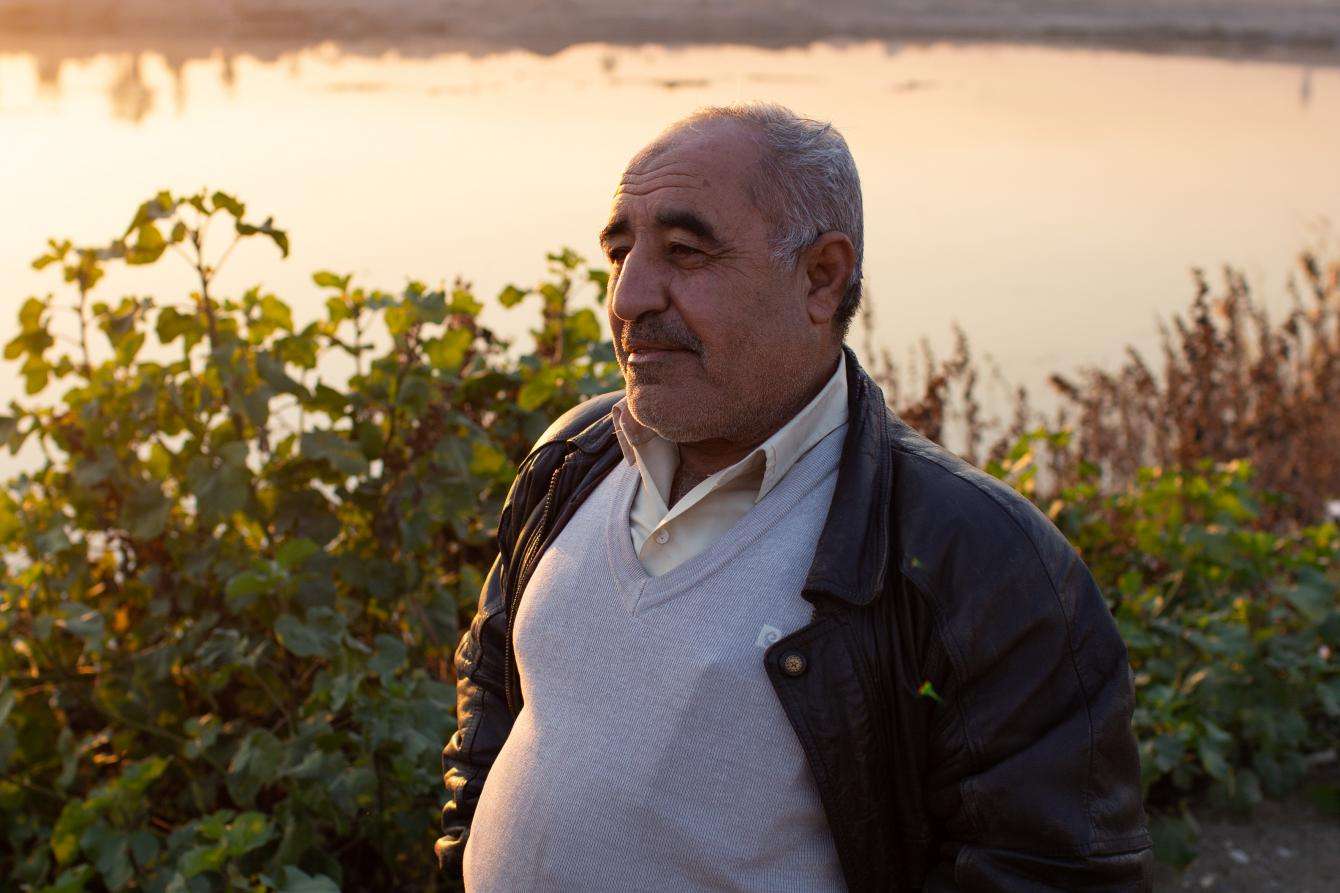
Before working for MSF, Abdallah worked in tourism and hotel management until 2003, and then transitioned to be a photographer for a local news agency. As a photographer, he documented the 2016 battle to wrest control of Mosul from IS. He received threats from them and, after they killed his son and his brother, he had to change the course of his life again.
Abdallah is currently the head cook for MSF at Nablus Hospital in west Mosul. When he was appointed, he was asked to present a proposal for how they could prepare meals for patients and their caretakers inside the hospital, without outsourcing the task to a restaurant. Thanks to his experience in management, the hospital kitchen now provides healthy meals seven days a week.
“I like to be creative in what I do,” says Abdallah. “I know that it is impossible to please everyone, but I feel satisfied every time I please a patient, a colleague, or a neighbor. I seek to always do my best work and to be worthy of what I am entrusted with, especially as, through my work, I am also serving the people of my town.”
If he ever feels stressed, Abdallah goes to the banks of the Tigris River, where he finds peace of mind. “Water is life,” he says. “Beside the river I recall the memories of the past, which we put behind us but never forget, since they are the cornerstone for building our chosen future.”
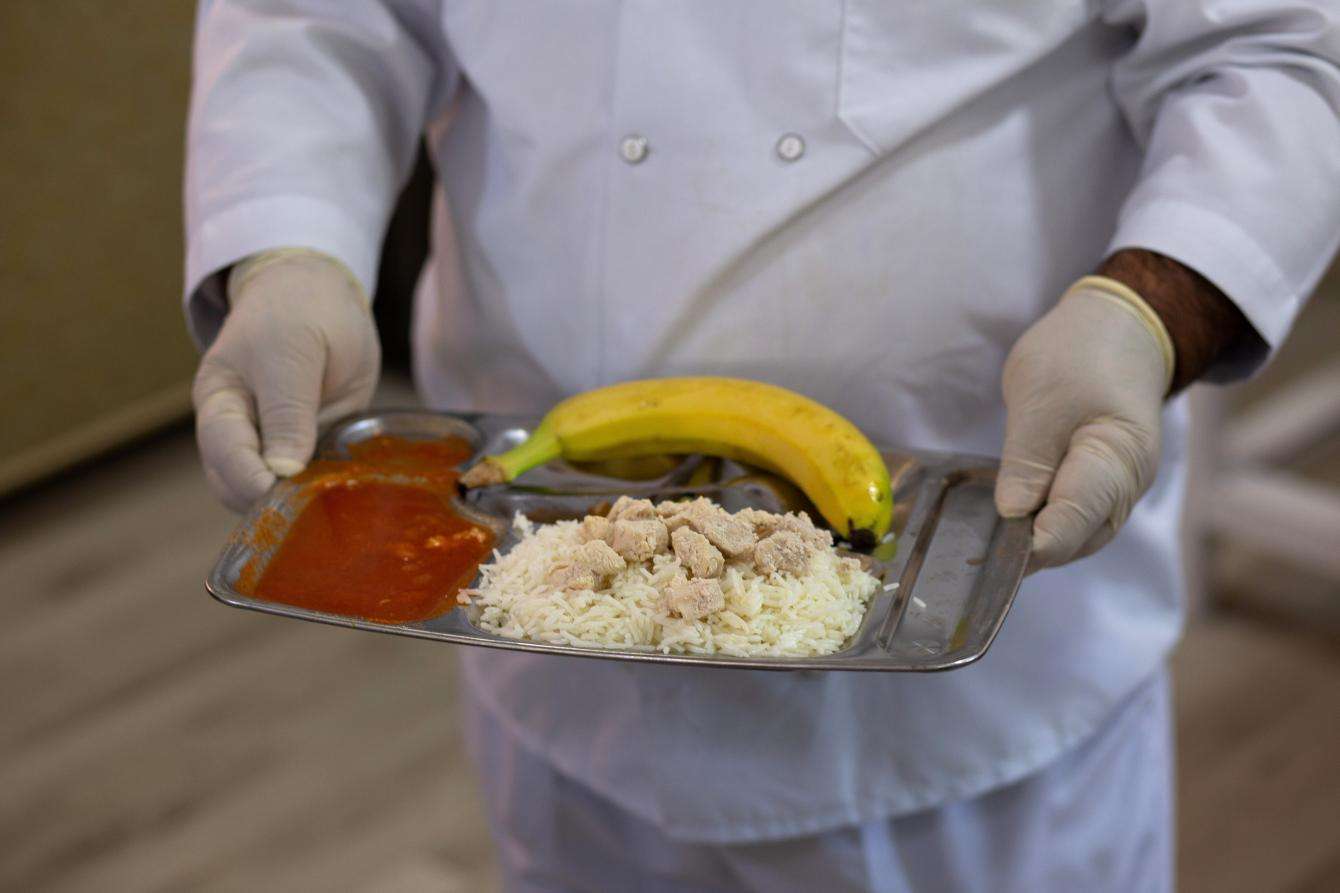
Nour Al-Zouhairy, medical data supervisor
Nour Al-Zouhairy graduated from Mosul technical college in 2014, where she majored in computer engineering. While IS controlled Mosul, she couldn’t find work. What gave Nour strength then—as it does now—was her relationship with her siblings and parents. “My family is bound together by a lot of love,” says Nour. “We gather every night to talk about our days and discuss any problems we’ve encountered, so that we can support each other.”
Nour first heard about MSF through her sister. “My sister was working as a translator with MSF, and through her I learned a great deal about the organization,” she says. “When she told me about a vacancy at an MSF project in Mosul, I applied and was lucky enough to get the job.”
But the 28-year-old deserves her good fortune: she is ambitious and diligent and got where she is today through hard work. After working as a medical data entry officer at Nablus hospital in west Mosul for some months, she was hired as a medical data supervisor.
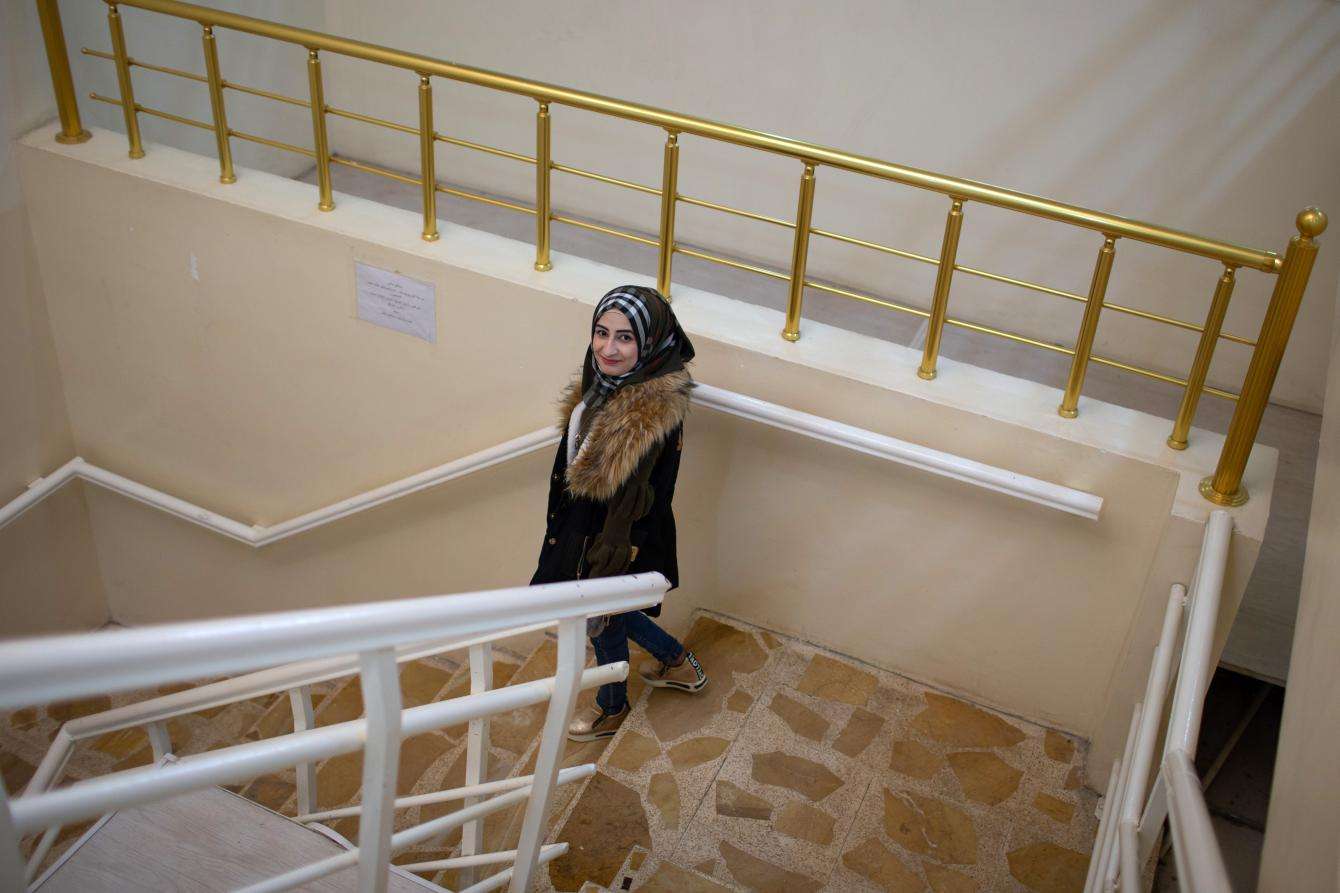
“What I like most about my job is that I learn something new every day,” says Nour. “I have developed my professional and personal skills. When you work with an international organization like MSF, you get to meet people from different countries and are introduced to new cultures. It’s a dynamic work environment.”
Nour’s work has its challenges. She supervises a team of four, including two men. “It still feels a bit difficult in our society to have a woman supervising a team of men,” she says. “I have to be strong and decisive in making decisions and distributing tasks, but at the same time I have to maintain positive professional relations with my colleagues.”
Nour is inspired by the strong women in her life, including her logistician friend who proved that logistics don’t have to be a man’s job, and her hardworking mother, who still finds time – despite long hours working shifts in a public hospital—to listen to Nour’s concerns and offers moral support.
In her free time, Nour immerses herself in reading fiction. “The Alchemist is my favorite novel,” she says. “It taught me that one should cling to one’s dreams and hope until the very end. We can take risks and set out on adventures to achieve our goals, and we should keep trying until we reach that goal.”
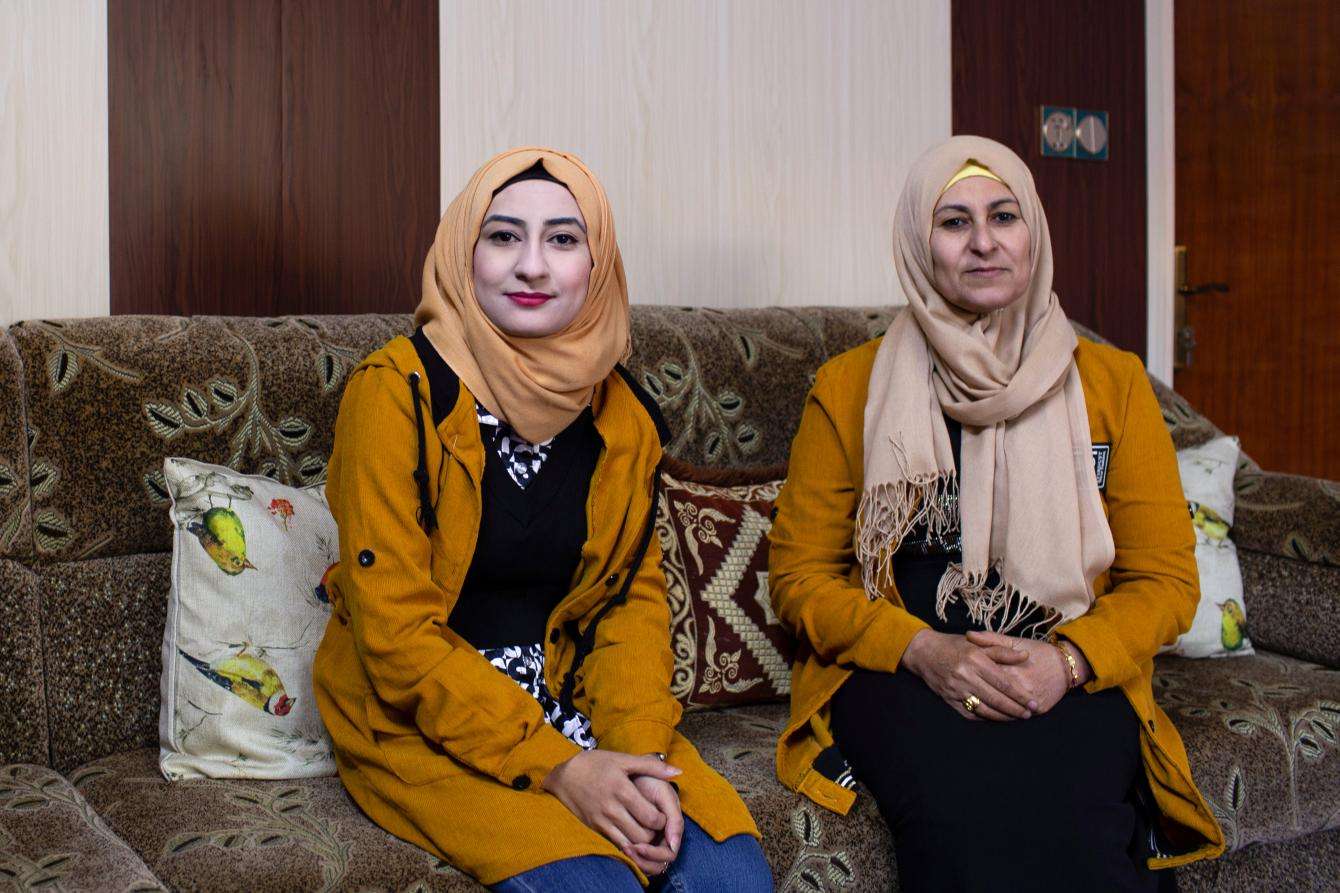
Mohamad Ghanem, maintenance agent
Forty-year-old Mohamad Ghanem wishes he could turn back the clock and relive his teenage years. At the age of 11, he took the world’s weight on his shoulders after his father fell ill, and he had to step up to support his seven younger siblings.
Mohamad followed his passion for rewiring electrical connections, succeeding in earning his living that way and becoming a skilled electrician. “I wanted to stay in school and become a doctor, maybe a surgeon, but eventually I became a doctor of electricity,” says Mohamad, with a big smile on his face.
Mohamad works as a maintenance agent in the logistical team at MSF’s Nablus Hospital in west Mosul. It’s not his first job with MSF; he has worked for nine different MSF projects in Mosul since 2017. “When I first applied to work with MSF, I just needed a job, but I chose to stay with the organization because I receive great support and appreciation from my team. I feel that my job brings an added value to MSF’s work.”
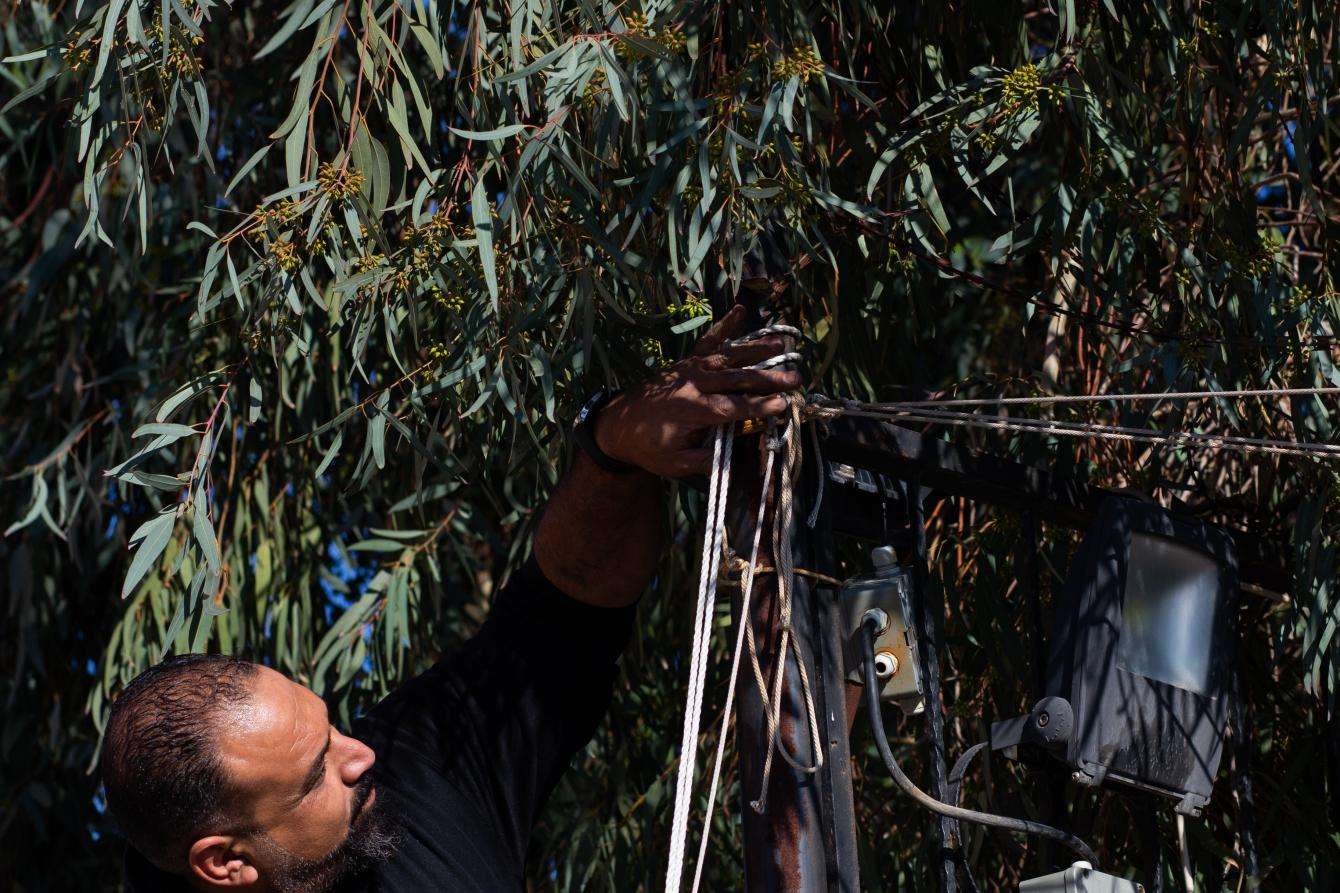
Mohamad’s biggest motivation is helping people, which gives him a joy he can’t put into words. By fixing electrical issues in the hospital, he ensures that the medical work can continue uninterrupted. “The medical team is at the forefront of the hospital, while the logistical team is its backbone. I think my job directly serves the people, which is why I will always do all I can for the success of the project.”
When he’s going through a tough time or facing a difficult problem, Mohamad gets in his car and drives without any destination in mind, simultaneously quenching his thirst for exploring new places and finding peace of mind. Often, he will stop by a river and sit for a while, without distractions, to focus on possible resolutions for his problems. He believes that “humans need some serenity in this busy and fast-paced life.”
After a busy day at work, Mohamad returns home still full of energy. He helps his six children with their homework then plays with them. He sits with his wife to tell her about his day and to ask about hers. “I never let my children see me in a bad mood,” he says. “I have great love for my family. I live to see them happy and I hope I can give them a better future.”

Mohamad Anwar, biomedical supervisor
Mohamad Anwar had no difficulty choosing his major in college; he had always dreamed of becoming an engineer. “I wanted to make my childhood dream come true and meet labor market requirements at the same time,” he says. “So, I chose biomedical engineering, as it’s an evolving field that keeps up with developments in the medical field.”
After graduating, Mohamad discovered there were no job opportunities for a biomedical engineer in Mosul, and he considered leaving the city to find work elsewhere. But when IS took control of the city, he chose to stay with his mother and siblings and to put his dreams on hold.
After the Iraqi government regained control over Mosul, a number of humanitarian organizations set up projects in the city, bringing with them new job opportunities. Mohamad browsed job postings on websites until finally he found one that caught his attention. The 29-year-old now works as a biomedical supervisor in MSF’s post-operative care hospital in east Mosul.
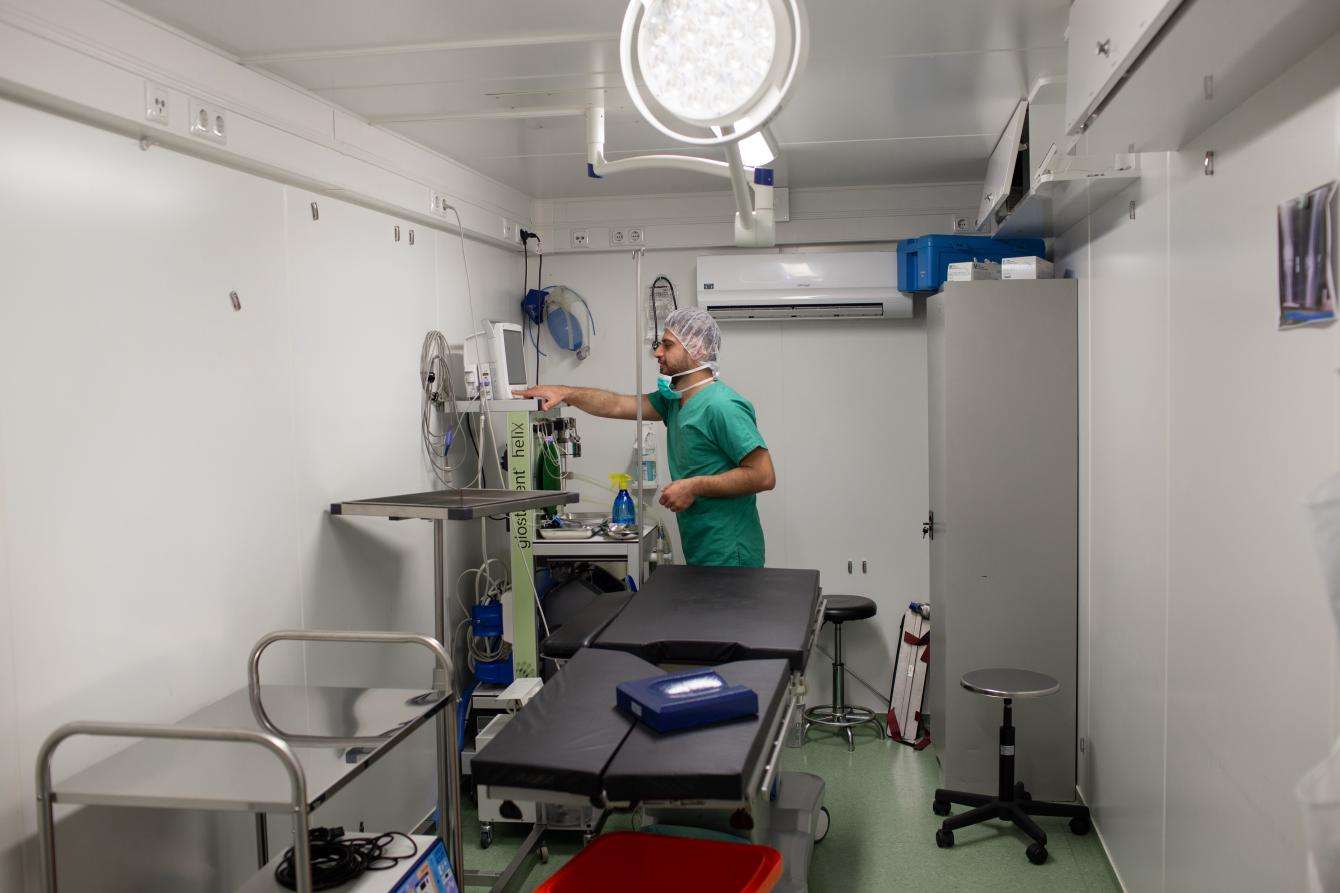
Mohamad believes that MSF’s medical activities can only be sustainable if its medical equipment functions properly. He has a regular maintenance plan for all the equipment in the hospital. But underneath the spreadsheets is a man with a passion for helping people. “I always try to help people as much as I can,” he says. “When the fighting started in Mosul, it required an even larger response than we could offer at first. I believe my work with MSF is my opportunity to help as many people as possible.”
Mohamad is sociable by nature, which is reflected in his professional and personal life. He loves to spend time with friends and family and he enjoys large social gatherings. These occasions give him a sense of hope, despite all the difficulties he has encountered.
“I love Mosul and I am not thinking of leaving anytime soon,” he says. “But our reality on this side of the world is uncertain and we can never know what the future holds.”
Muammar Al-Hiyali, head of drivers
Muammar Al-Hiyali recently recounted a painful incident from eight years ago when an explosion near a crowded restaurant took dozens of lives and injured many more. His brother-in-law was one of the wounded. He bled heavily and had shrapnel lodged inside his abdomen. Fortunately, he was rushed to the hospital before it was too late. Having almost lost someone dear to him in the blink of an eye, Muammar decided to find a job helping others, in the hope that their loved ones would not lose them either.
When he was younger, Muammar hoped to go to medical school, but his need to earn a living made this impossible. “I’ve had to support myself since I was a teenager,” says 45-year-old Muammar. “I was working and studying at the same time, so I couldn’t become a doctor. Life doesn’t always give us the chance to do what we want.”
When IS took control of Mosul, Muammar left the city with his wife and four children. Life outside Mosul was not easy; he had to start again from scratch, and constantly worried about his relatives back in the city. In 2015, he started work as a logistician for a medical organization in Sulaymaniyah, but his love for Mosul never waned. “In one of the markets I used to go to, there was a piece of graffiti of migrating birds with the words ‘We will return one day’,” he says. “Every time I looked at it, I missed Mosul even more. After the battle to retake the city, I decided to go back home to help my city in any way I could.”
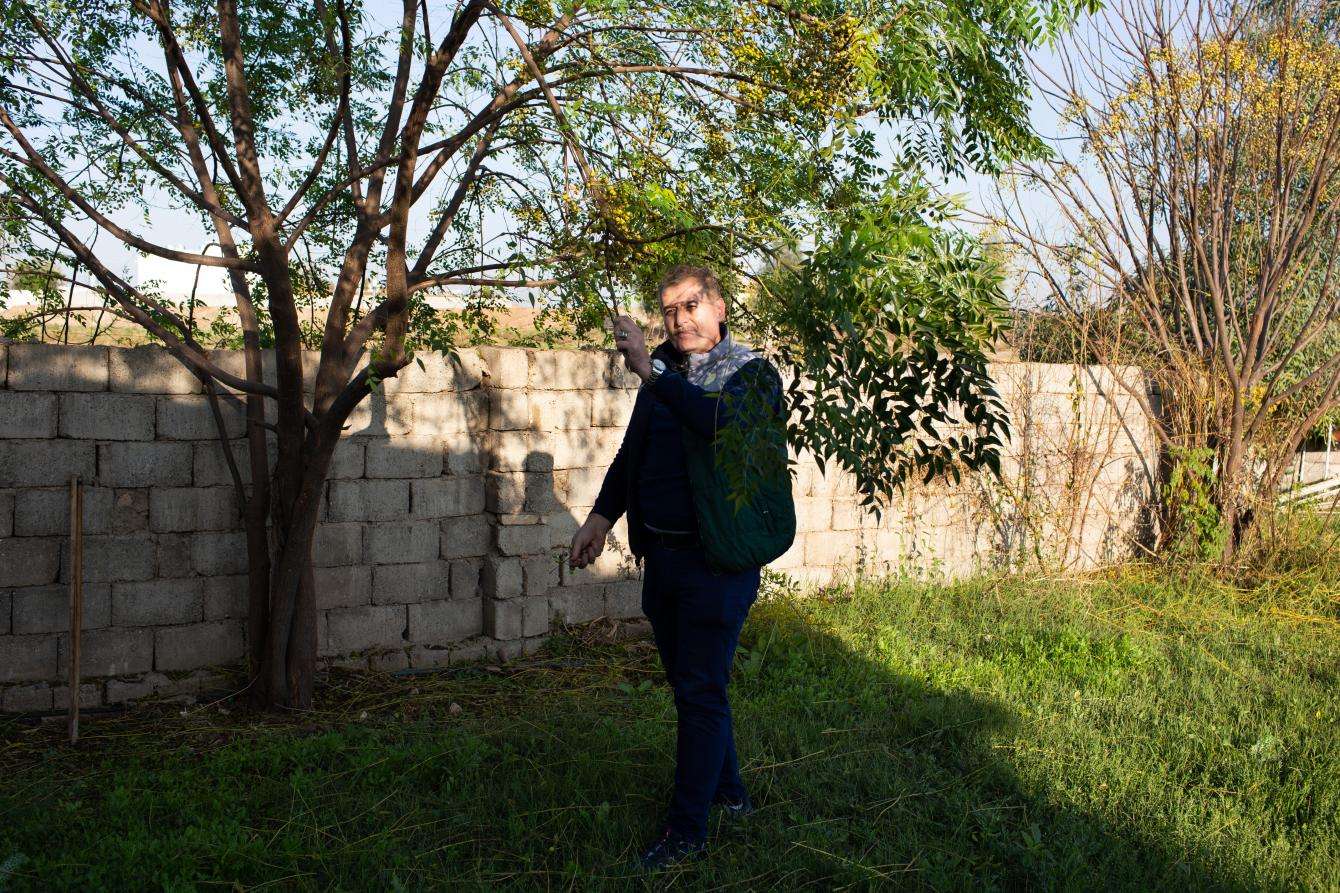
Muammar now works as head of drivers in MSF’s post-operative care hospital in east Mosul. He manages a team of 15 drivers and coordinates the movements of all MSF’s vehicles. The members of his team feel more like friends or brothers to him; they start every morning together before going about their daily tasks.
Since Muammar knows his job contributes to the patients’ recovery, he performs every task with dedication to this cause. He often tells people about MSF’s services to help disseminate information to people who may need it. One of his friends was in a serious car accident and was told his leg might have to be amputated, but he followed Muammar’s suggestion to go to MSF’s hospital, where the surgical team was able to save it.
“What motivates me and makes me love my job is a patient’s joy during the recovering process,” he says. “As staff members, we follow them on their journey of healing. We forget the strain of work when we see them able to walk again.”
Muammar owns a small farm, which he inherited from his grandfather. He visits it daily to take care of the trees and plants, but wishes he had more time to devote to it. “My dream is to expand my grandfather’s farm: to plant fruits and vegetables and to keep some cows or sheep,” he says. “I’d like it to become a place for family gatherings, where my children, my nieces, and my nephews can play together. I hope that one day my dream will come true.”
